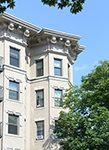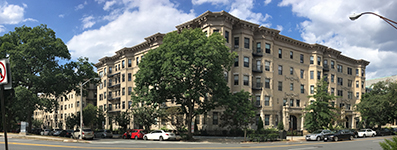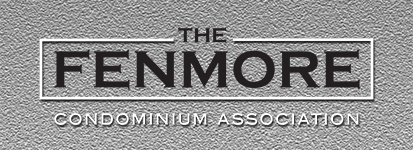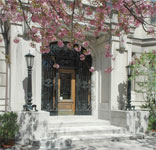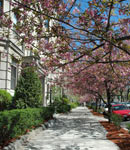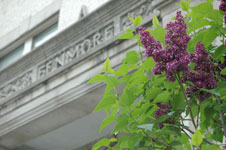- What is a Condominium?
- What are the Common Areas and Facilities?
- What are the Condominium Documents?
- What is the difference between an Owner, Resident, and Tenant?
- What is a unit’s Beneficial Interest?
- What do my Condo Fees pay for and how are they calculated?
- Where do I send my condo fee payment?
- What is the Replacement Reserve?
- What is the Board of Trustees?
- What is Lundgren Management?
- Should I have individual unit insurance coverage?
- The power is out in my unit, but not in the hallways. Who do I contact?
- How do I get a key to gain access to the building?
- How do I get my name added to the front entrance intercom?
- How do I get my name added to the mailbox list?
- Where can I do my laundry?
- What should I do if the elevator is broken?
- Where do I send my rent check?
- Do the condo rules apply to me if I am a renter?
- Where can I park my car?
- Who do I contact if I have a complaint against another resident in the building?
- I have a bug/pest problem in my unit, what do I do?
- Is there a Lost & Found?
What is a Condominium?
The term CONDOMINIUM may be defined generally as a system of separate ownership of individual units in multi-unit projects. The owner of a condominium unit owns not only the unit described in his deed but also an undivided interest in the “common areas and facilities.” The expenses for the overall operation of the condominium for such things as electricity, water, and maintenance of the grounds, maintenance of the building, personnel and insurance. These are called common expenses or “condo fees” and are shared by all of the unit owners according to the “beneficial interest” of each unit owned. Such condo fees are paid on a regular basis (usually monthly) directly to the Association. In many respects, ownership of a condominium unit is not different from ownership of a single family home. Instead of owning a house and land, the condominium unit owner owns his or her unit, together with the percentage interest in the common areas. Like the owner of a house, the condominium owner may mortgage his or her unit independently of any neighbor. Likewise, the condominium owner’s unit will be assessed and taxed separately by the community in which it is located. A condominium association becomes an effective organization upon the recording with the Registry of Deeds it’s Declaration of Trust, Master Deed, By-Laws and any plans required by the provisions of Chapter 183A of the General Laws of the Commonwealth of Massachusetts.
Condominium living is also a form of communal living. Because of your immediate proximity to your neighbors, and because everyone’s actions affect property values and the quality of life at the condominium, everyone must cooperate and abide by the Rules and Regulations established by your Trustees and the By-Laws set forth in your documents. (Back to FAQ)
What are the Common Areas and Facilities?The “common areas and facilities” of the condominium may be defined generally as those areas and facilities which serve all the residents of the condominium complex. These facilities may include land, driveways, walkways, lobbies, exterior foundations, exterior walls, exterior roofs, piping and mechanical systems serving the entire building, and elevators. The common areas for your complex are specifically defined in the Master Deed. (Back to FAQ)
What are the Condominium Documents?The Master Deed and Declaration of Trust are the governing documents of the condominium association. These documents are recorded with The Suffolk County Registry of Deeds. The Master Deed is the basic legal document establishing the property’s condominium status and providing for the administration of the association. Chapter 183A of the Massachusetts General Laws defines the required contents of this document, which include complete descriptions of the land and building(s) of the association and the proportionate interest of each unit therein, the common elements, floor plans, a statement of the purpose for which the buildings and units are intended, the method of amending the Master Deed and the name of the organization which will manage and regulate the condominium. The Declaration of Trust includes the By-Laws (also called the Rules and Regulations) which set forth the day-to-day operating rules under which the condominium will be run. (Back to FAQ)
What is the difference between an Owner, Resident, and Tenant?A UNIT OWNER is a person or entity who legally owns a unit at the Fenmore Condominium. A NON-RESIDENT OWNER is a person(s) or entity who legally owns the unit but does not reside at the building. A TENANT is a person who is renting a unit from a unit owner or a unit owner’s agent. (Back to FAQ)
What is a unit’s Beneficial Interest?The BENEFICIAL INTEREST of a condominium unit is a predetermined percentage assigned to it and stated in the Master Deed (see Condominium Documents). It is based on the ratio of the unit’s floor area to the sum total floor area of all units in the association. The beneficial interest represents the proportional responsiblity of each unit (and therefore it’s owner) to overall expenses of the condominium association. (Back to FAQ)
What do my Condo Fees pay for and how are they calculated?CONDO FEES (or “common area fees”) pay for everything associated with the condo association “outside” your unit(s). At the Fenmore this includes the fuel to provide heat in your radiators as well as hot water (something not always provided by other, particularly newer, condo associations). The Fenmore also retains a full-time Maintenance Director (superintendent) and full-time assistant/cleaner as well as part-time, on-call coverage which many smaller associations do not. The Fenmore is also an older (110, year) complex of seven buildings with seven equally old elevators which require regular maintainance. Condo fees also cover the standard required expenses such as a master insurance policy, snow and trash removal and common area utilities and also pay for the management company, office staff and expenses, accounting and legal services and all other services provided by outside vendors and contractors. In addition, the Association sets aside a portion of the monthly condo fees in a Replacement Reserve account for anticipated future projects and unexpected expenses. All these items are listed in the Operating Budget (available on the DOCUMENTS page). A unit’s monthly condo fee is calculated by simply multiplying the total Operating Budget by the unit’s beneficial interest percentage (as defined in the Master Deed) and dividing by 12. (Back to FAQ)
Where do I send my condo fee payment?The 2012 payment address for condo fee payments is Fenmore Condominium, P.O. Box 844011, Boston, MA 02284-4011. You should always reference your unit’s account number on your payment. (Back to FAQ)
What is the Replacement Reserve?The REPLACEMENT RESERVE (sometimes called a Capital Reserve) is an account of condo fee funds, separate from the account for operating expenses, that are set aside for future replacement or upgrade projects. By maintaining a list of major building components (roofs, boilers, carpets, fire-escapes, masonry, etc.) and their anticipated “life-span” the association can establish a schedule of when these items will need to be replaced and roughly how much money will be needed when the time comes to take on the project. The Reserve also allows the Association to handle emergency major expenses (e.g. the unexpected failure of an elevator motor or water heater) by delaying some less urgent planned projects. The Reserve plays a major role in keeping expenses (and condo fees) stable and avoiding large, unexpected Special Assessments which can be burdensome on unit owners. (Back to FAQ)
What is the Board of Trustees?The Board of Trustees is comprised of unpaid, volunteer unit owners and is the governing body which enforces the condominium documents and directs the maintenance of the association and property. (Back to FAQ)
What is Lundgren Management?The Board of Trustees engages the services of The Lundgren Management Group, Inc. as the Managing Agent for the condominium association. Lundgren Management works under the direction of the Trustees to carry out the actual management and maintenance responsibilities. Included in these responsibilities are the collection of the common area charges (condominium fees), maintenance of the common areas (hallways, grounds, roof, main mechanical systems) and restoration projects as needed. (Back to FAQ)
Should I have individual unit insurance coverage?YES, whether you are a tenant, a resident owner, or a non-resident owner, a basic “Homeowner’s” insurance policy is HIGHLY recommended. The condominium Master Insurance Policy does not provide coverage for various items such as: Claims under the policy deductible (which is VERY large), personal property of a unit owner, and general liability coverage for any owner or resident’s personal acts arising out of maintenance or use of any individual unit. Resident owners or renters should purchase a Homeowner’s policy to cover their personal effects such as clothing, furniture and draperies, as well as other items that may not be covered by the Master Policy. Non-resident owners renting their units should purchase a policy specifically designed for rental property (sometimes referred to as “Fire and Dwelling Insurance”). It is also a good idea to have the policy written to coordinate with the Fenmore’s Master Insurance Policy. Your insurance agent should be able to help you with this. Information on the Master Policy and a certification letter is provided by the Brown & Brown of Massachusetts Insurance Agency and may be found on the DOCUMENTS page or can be obtained from Lundgren Management. (Back to FAQ)
The power is out in my unit, but not in the hallways. Who do I contact?First, locate the circuit breaker(s) for your unit and make sure they are in the ON position. Circuit breaker panels may be located in your unit or in the basement of your building. If the circuit breaker(s) are ON and you still have no power you should call the electric company (NSTAR 800-592-2000). The electric company will turn off power if you failed to change the account into your name when you first moved in or if you have not paid your electric bill. (Back to FAQ)
How do I get a key to gain access to my building?
Instead of metal keys the Fenmore now uses an electronic security system that allows residents to use their Bluetooth ![]() enabled mobile device (smart phone) to gain access to the buildings and laundry rooms. Residents must first register with Lundgren Management by completing the online form at lundgrenmanagement.com/notify_move.php or downloading the Resident Registration Form, completing it on your computer, and emailing it to Lundgren Management at condocommunications@lundgrenmgmt.com.
enabled mobile device (smart phone) to gain access to the buildings and laundry rooms. Residents must first register with Lundgren Management by completing the online form at lundgrenmanagement.com/notify_move.php or downloading the Resident Registration Form, completing it on your computer, and emailing it to Lundgren Management at condocommunications@lundgrenmgmt.com.

Once registered you will be emailed instructions on how to download the mobile app to your phone and pair it to the reader at the front door of your building (which will automatically pair your phone to the rear door and laundry room as well). To unlock one of the doors in your building either A) open the app and tap “Open Door” on your phone or B) if the app is already running on your phone (even if it’s in your pocket) just tap the upper right corner of the reader.

By tapping the upper right corner of the intercom screen, visitors can access a building directory. The Resident Directory alphabetically lists each resident’s last name, first initial and unit number. The visitor can scroll to your name and tap it to ring your phone. When you verify who the person is, you can then release the front door(s) by pressing “9” on your phone. Rear doors and laundry rooms have simpler “Read Only” sensors for residents only. Only last names are listed on the directories so be sure expected vistors know your LAST name. If you do not have a phone that will run the app, contact Lundgren for other options. The intercoms are an important part of the Fenmore’s security systems. For your own and your neighbor’s safety, do not admit a caller that you do not know.
How do I get my name added to the front entrance intercom?To be listed on your building’s intercom system you must register by completing the Resident Registration Form which you can download, fill out on your computer and email to Lundgren Management at condocommunications@lundgrenmgmt.com — or fill out the online form at http://lundgrenmanagement.com/notify_move.php. Once you are programmed into the system, visitors can enter a code in the intercom which will ring your home⁄cell phone. When you answer the call and verify who the person is, press “9” on your phone to unlock the front door. If the visitor does not know your code (e.g. deliveries) they can look it up by scrolling through the LAST names in the building. NOTE: The intercom directory only lists LAST names and the intercom codes are NOT the same as apartment numbers. If you are expecting a visitor make sure they know your code number and⁄or your LAST name. For your and your neighbor’s security, never let anyone into the building that you do not know. (Back to FAQ)
How do I get my name added to the mailbox directory?In order to receive mail at the Fenmore you must register by completing the Resident Registration Form which you can be download, fill out on your computer and email to Lundgren Management at condocommunications@lundgrenmgmt.com — or fill out the online form at http://lundgrenmanagement.com/notify_move.php. In addition to being added to the Mailbox Directory, you need to place a clearly printed label with your apartment number and the names of everyone receiving mail there at the top of the back inside of the mailbox. This Mailbox Memo will show you how. (Back to FAQ)
Where can I do my laundry?There is a laundry room in the basement of your building which you can access with your smartphone. The laundry equipment still accepts coins but has been upgraded to allow payment via your credit or debit card through a dedicated smartphone app (CleanPay Mobile). The app also allows you to monitor the progress of a machine’s cycle and even get an alert when your laundry is done. Go to the Laundry Room page for instructions on how to download and use the app. If any of the machines are not working please report it to the maintenance office noting the building and machine’s number. (Back to FAQ)
What should I do if the elevator is broken?Very often the elevator does not respond because the last rider has not completely closed one or both doors. When this happens the safety interlock of the carriage will not allow the carriage to move until the doors are closed. You can often solve the problem yourself by finding the eleavator and closing both the inner and outer door securely. You can prevent this from happening by being sure that both doors close completely when you exit the elevator. Also, do not attempt to open the elevator door until the carriage comes to a complete stop. Opening the carriage door too early can cause the elevator to misalign with the floor landing or even become disabled.
Keep in mind that the elevators were built in 1912 and cannot handle overloading or abuse. If an elevator does not respond even after reclosing the doors, report it to the Fenmore Maintenance Office. (Back to FAQ)
Where do I send my rent check?Your rent should be sent to your landlord. DO NOT send rent checks to the condominium’s superintendent or Lundgren Management. (Back to FAQ)
Do the condo rules apply to me if I am a renter?YES. You must ask your landlord for a copy of the condominium Rules & Regulations (also called the By-Laws) which all residents are required to follow. The Rules and Regulations are listed in the Fenmore Resident Information Handbook. Copies of the handbook are available from the Fenmore Maintenance Office or in PDF form on this web site. Remember, you are not living in an apartment complex; you are renting a unit in a condominium association. Your landlord is responsible for all of your actions (and those of your guests, visitors, etc.) and you will be subject to fines in accordance with the condominium’s Rules & Regulations and the terms of your lease. (Back to FAQ)
Where can I park my car?The spaces in the Fenmore parking lot are privately owned and cars without a valid parking tag will be towed. Parking on the opposite side of Charlesgate East (next to the park) is unrestricted – you do not need a Resident Sticker to park there. Most of the other spaces on the Fenmore block are "Resident Only" and require a Fenway/Kenmore Resident Sticker to be displayed on the back window of the car. Resident stickers may be obtained for FREE at the Boston City Hall (www.boston.gov/departments/parking-clerk/how-to-get-resident-parking-permit or call 617-635-4682), but your car must be registered in Boston and you must show proof you live in the Fenway⁄Kenmore area (with a utility bill, bank statement or signed lease, for example). (Back to FAQ)
Who do I contact if I have a complaint against another resident in the building?You may contact the management company at condocommunications@lundgrenmgmt.com or the Fenmore Maintenance Office at fenmoresuper@gmail.com with your complaint. Please be as specific as possible about which resident you are complaining about and the matter will be investigated. (Back to FAQ)
I have a bug/pest problem in my unit, what do I do?Contact the Fenmore Maintenance Office immediately. Extermination in the building and your unit is FREE and should be treated immediately to prevent spreading or infestation. (Back to FAQ)
Is there a Lost and Found?You can check with the Fenmore Maintenance Office if you have lost or found an item on the property. (Back to FAQ)
